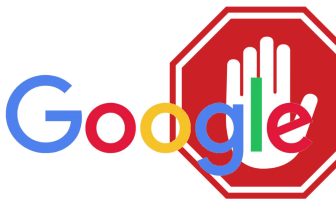What does an SSL stand for:
SSL certificates use something many refer to as open key cryptography. SSL Stands for Secure Socket Layer. it allows an encrypted communication bridge between a web browser and web server. Currently in use by all legitimate businesses which counts over millions of websites. The reason for this in use is to reduce the risk of losing sensitive information of Credit Cards, Payments, Subscribers, Website Users, emails, and passwords from being stolen by hackers or any identity thieves. Therefore SSL gives a private conversation between two parties.

Where is it installed?
SSL Certificates are installed on the web server or hosting servers such as Godaddy, Hostinger, HostGator, or Bluehost. It will then authenticate the Identity of the particular website used by its owner. SSL Certificates are also commonly referred to as Digital Certificates. It allows the data on the website to be fully encrypted.
Are all SSL Certificates the same?
There are many types of SSL so this cant is the same. SSL Certificate comes in 3 different types.
Single: Used in one website
Wildcard: Used in one website and its underlying subdomains.
Multi-Domain: Used in securing multiple domains and their sub-domains.
What are the Different levels of validation of SSL?
Domain Validation: This level of validation is not much costly. This only covers the basic encryption required to verify the ownership of the domain. It can be acquired within minutes.
Organization Validation: Including basic encryption along with details of domain name registration, other owner details such as name, address, and other details are authenticated through this certificate. It takes a couple of hours for the owner to receive.
Extended Validation: Used mainly by big businesses like banks, eCommerce stores & top institutions as it always gives the highest degree of security. It involves various amounts of examination by the provider on the basis of the SSL Certification rules from the particular industry’s governing body. Many other aspects such as entity authorization, legal, physical, and other operational areas of the company are verified prior. It usually takes days or weeks to be dispatched to the site owners.
Who needs SSL Certificate?
Any business or website owner who is looking to secure their website to process or collect confidential customer information. such as:
- Financial Information such as Credit Card or Debit Cards Details
- Login and Passwords
- Private Information such as name, address, id numbers, date of birth, mobile, or email.
- Contracts or legal documentation.
- Medical or other records.
- Clients or Customer Lists
Where to get SSL Certificates?
Certificate authorities issue SSL certificates. They have to accept certificate applications, authenticate and issue the certificate appropriately. Domain name registrars or hosting companies usually give SSL certificates as required.
How to know a website has an SSL Certificate?
There are four things to look for:
- Green or black padlock on the URL bar beginning.
- HTTPS is shown instead of only HTTP
- A trust seal. When you click on the lock it shows the certificate information.
- A green address bar in the case of an EV SSL certificate
Can we get free SSL?
Yes, but free SSL is obtainable at the time of purchasing hosting for a minimum of 1 to 4 years by most hosting companies. Some sites allow the creation of free SSL that is valid for 3 months. And after that, the SSL has to be renewed for more. Click here to view all available Paid and Free SSL Providers.









